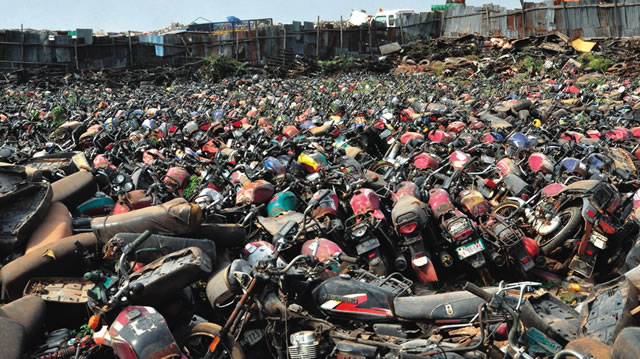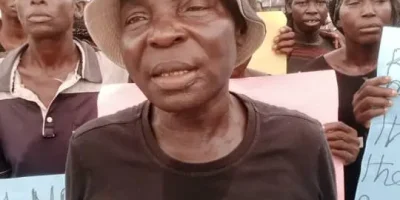The recent ban of commercial motor cycles known as Okada in four more local government areas of Lagos State has brought to ten local government areas where Okada operations have
been banned by the Babajide Sanwo-Olu’s administration. The four local government areas include Kosofe, Oshodi-Isolo, Mushin and Shomolu.
This recent ban which became effective on September 1 2022, from observation so far in the past four days reveals that actually, the presence of commercial motorcycle operators in Lagos could be a serious security risk at a time terrorists are infiltrating every where in the country.
It has been observed that the ban has left many of the Okada riders who are of northern extraction to leave Lagos in droves thereby reducing the vulnerability rate of any possible terror attack as it has been feared that such elements could be terrorist agents.
Therefore, security wise, the ban of commercial motor cycles is already achieving some reasonable objective. This could be revealed officially in a few days to come by police authorities in their security situation report as number of crimes involving motor cyclists may have reduced with the ban.
Similarly, the ban has the tendency to reduce the number of Okada related accidents on Lagos roads as revealed in earlier reports after the first phase of ban in six local government areas. Media reports quoting Lagos State official sources have it that the number of Okada accident victims have reduced in those local government areas.
However, in all of this; it is revealing that the hardship the ban brought on residents who do not have alternative means of transport especially in the interior routes is quite disturbing. Investigation in Kosofe local government area for instance, reveals that those living in Owode Ajegunle area are not finding the Okada ban easy as they trek some kilometers inside from the Ikorodu Express way to their various streets which are largely not motorable.
The roads and streets are bad, with floods taking over greater portion as the water ways are blocked. The residents do not have any government presence and their only easy means of movements by greater majority who do not owe cars was commercial motor cycles which are now banned.
Without an alternative means of transportation, residents of these areas now face the problem of trekking far distance in pains and often with loads that come in different shapes. Those in buying and selling now have the challenge of transporting their goods and even school children whose only means of transportation to and from their schools in such remote areas now have the difficult challenge of movement.
It is therefore suggestive that as the ban on commercial motor cycle activities is sustained, government should go the extra mile to mitigate the pains inflicted on those whose only means of transportation in their areas has been motor cycles. Where the roads are manageably motorable, the Lagos State government can introduce mini bus service like what obtains in a place like GRA Ikeja where mini buses now operate in scores since the ban of commercial motor cycles in the area about a year ago.
Where the government cannot provide such mini buses, it can rehabilitate the roads and make them motorable for private commercial bus operators who may want to invest in transportation in those areas.








Comments